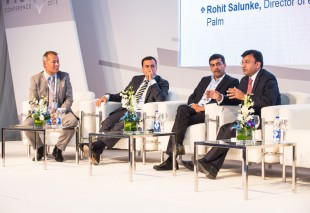

Hoteliers increasingly focusing on sustainability

Hoteliers in the region are ramping up efforts to make their properties more eco friendly and sustainable, with specialised efforts to ensure they comply with international standards.
Hoteliers and stakeholders gathered at the recently concluded Hotel Show to discuss 'A hotel viewpoint - sustainability for a better tomorrow' and shared best practices followed in their properties.
“At Accor Hotels we strictly follow the ‘Planet 21’ programme that is a well-defined 21 point charter defining the use of water, electricity, management amongst other important measures,” said Rohit Salunke, director of engineering, Sofitel The Palm Dubai.
Salunke went on to reveal the hotel’s green achievements: “The Sofitel is one of the most sustainable and green-compliant resorts in Dubai. For instance, the condensed water from the air conditioning system is used for the local irrigation in the hotel, swimming pools are heated via heat pumps. The hotel is also a fully certified to carry out its waste recycling having achieved several certifications from independent bodies.”
Another significant change has been in the lighting system, with 80% of the public area utilising LED lighting instead of conventional methods. “The switch has helped us save US $ 272,260 (AED 1 million) in utility bills over the last two years.” The hotel has also made significant cut backs in its water consumption having saved 10,000 - 15,000 cubic litres of water.
Meanwhile, Iftikhar Hamdani, general manager, Ramada Hotel & Suites Ajman put forth his hotel’s initiatives, “Ajman dumps 600 tonnes of waste in landfills every day. However, we have reduced 90% of our hotel waste. Initially, we used to produce 950 kgs of waste daily.
--- RELATED: Read Caterer Middle East’s extensive case study on Ramada Ajman’s measures to reduce food waste ----
“When I asked my team a few years ago, no one knew our daily waste production. 60% of our waste came from the kitchen. We purchased GreenGood (a special composting machine) in 2012, and it has saved the hotel US $98,000 (AED 360,000) in three years. We were paying AED 120,000 ($32,670) per annum for waste collection. Now, we don’t need it,” Hamdani added.
The panel widely spoke about sustainability and reduction of paper usage, tissues and hand towels in favour of hand dryers and absorbent wash cloths.
The Emirates Green Building Code has been made effective since January 2015, which requires all new buildings being built in Dubai to comply by its regulations.